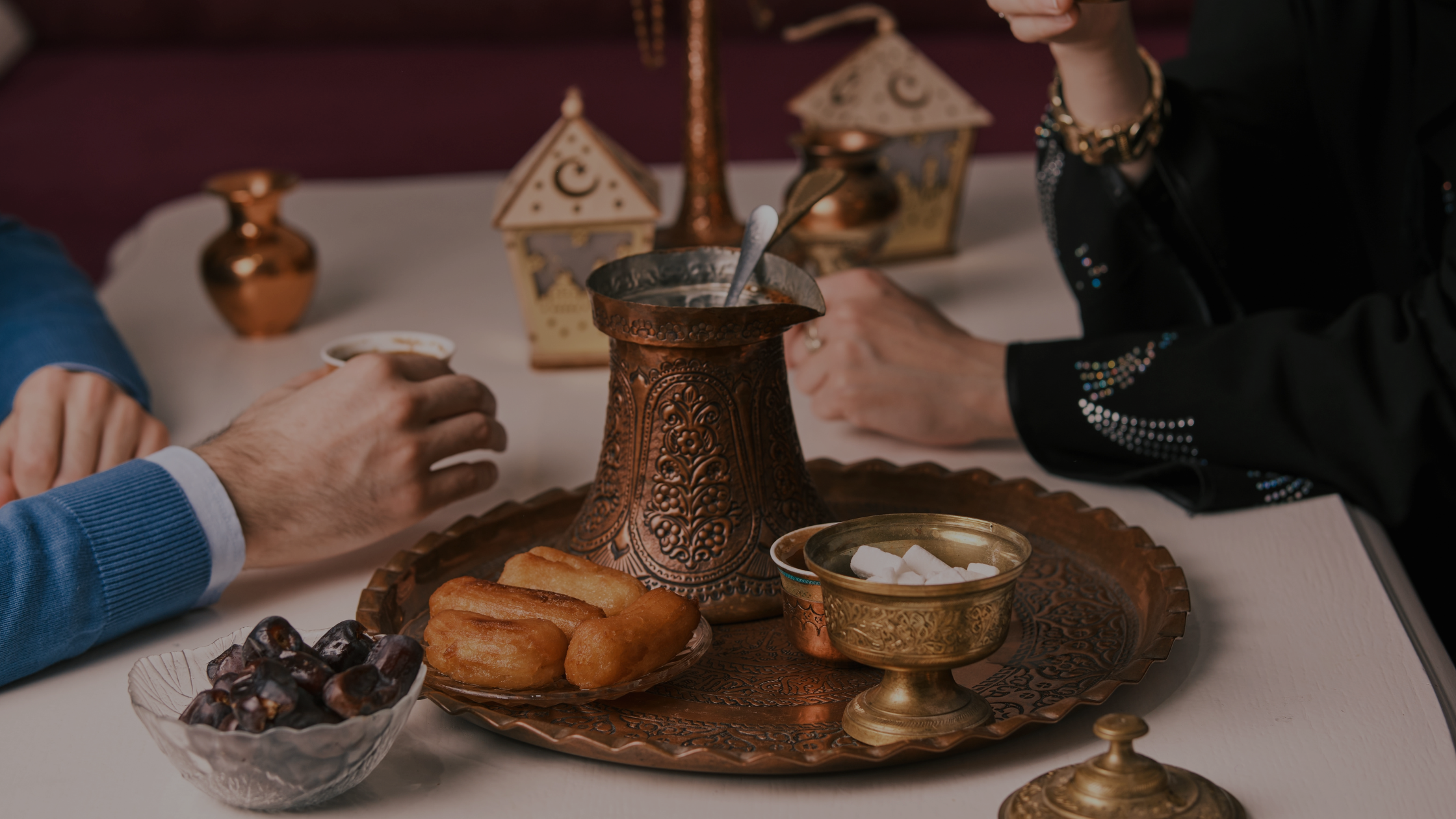Marriage has always been (and will remain) the epicenter of the Muslim community. From Instagram reels to viral podcast episodes, lectures, and heartfelt advice from scholars and community figures, the conversation is endless. Still, despite the wealth of information available, many Muslims find themselves stumbling at one of the most crucial stages courting the so-called ‘right person.’
We’ve heard it all. Lists of green flags, questions to ask on the first meeting, and compatibility quizzes dressed in Islamic wisdom. But amid all this, one key ingredient often goes missing: setting clear, respectful boundaries before things spiral.
It usually happens in one of two ways. One person is too afraid to speak up, worried they might lose their chance. The other is too unaware to recognize warning signs until it’s too late. Either way, the outcome is emotional turbulence that could have been prevented.
If you're navigating a budding connection or preparing for future courtships, now is the time to learn how to assert your values, protect your peace, and recognize red flags before they turn into regrets.
 1. Learn and Evaluate Yourself
1. Learn and Evaluate Yourself
Yes, you read that right. Before getting to know someone else, it’s important to take the time to understand yourself first. A well-known saying from Umar ibn al-Khattab reminds us: “Hold yourselves to account before you are held to account, and weigh your deeds before they are weighed for you.”
While this mainly speaks to self-reflection in a religious sense, it also applies to your overall identity. Who are you when no one’s watching? You might want a spouse who prays five times a day, but how consistent are you with your salah? Are you looking for someone mindful of Allah, while still being okay with casual chit chats with the opposite gender?
Taking the time to build a stronger relationship with Allah and with yourself can shift the way you see your needs, your values, and what you truly deserve in a partner.
2. ‘Yes, No & Negotiable’
If you have a strong sense of identity, you’ll have a better understanding of what your soul truly needs, what it can tolerate, and what’s non-negotiable. One helpful way to get clear on this is by sitting down on your own and creating a simple two-column list: “Yes” and “No.”
In the “Yes” column, write down the qualities you’d like to see in a future partner. In the “No” column, list the things you know you wouldn’t be comfortable with. For example:
Yes – Someone who’s consistent with their fitness routine.
No – Someone who’s lazy and unmotivated when it comes to health.
You can include anything that matters to you, and it doesn’t have to be limited to just one area. But try not to go overboard with overly specific or superficial criteria like, “Yes: 6ft tall, blue eyes, drives a Mercedes, lives in New York.” While preferences are valid, remember that what truly matters in a long-term partner are qualities like akhlaq (character), adab (manners), and how well your values align.
On the other hand, it’s also helpful to keep a list of things that are negotiable. Sometimes, we can get caught up in certain ideas or preferences at the moment, but having an open list of things you're willing to reconsider can give you more clarity moving forward.
For example, you might feel that marrying someone from a different culture isn’t ideal right now but if the right person comes along, you’re open to exploring that possibility. Being flexible in areas that aren’t deal-breakers can help you stay grounded and focused on what truly matters in the long run.
At the end of the day, only Allah SWT knows what’s best for you. Stay open-hearted, be honest about your needs, and always make dua for clarity and ease in the process.
 3. Identifying The Red Flags
3. Identifying The Red Flags
Now that you’ve listed what you’re looking for in a partner, it becomes much easier to navigate communication during the courting phase. When certain topics come up (especially ones you’re sensitive about) and the other person’s response clearly falls outside your negotiable list, that’s your cue to set clear boundaries.
Let’s say you prioritize a partner who performs Fajr at the masjid, but the person you’re speaking to doesn’t have that habit. That’s when you need to pause and check in with yourself. Go back to your list and ask, “Why did I place this under the ‘No’ column to begin with?"
If it matters deeply to you, that’s your sign to step back with confidence.
Likewise, if a response makes you uneasy, like someone saying they plan to live with their parents after marriage, and you know you’re not comfortable with that, it’s okay to remove yourself from the situation. Trust your instincts. If something feels like a red flag now, what makes you think it’ll feel right later?
There’s a well-known phrase in the Muslim community: “Don’t marry potential, marry reality.” It’s a reminder that when it comes to something as serious as marriage, you’re not committing to who someone might become, you’re choosing who they are right now.
A strong marriage is built on compatibility and mutual understanding in the present, not on the hope that someone will change in the future.
4. Strong Tawakkul in Allah
For some, the idea of setting boundaries can feel overwhelming. This is often where people, even when clearly uncomfortable with certain behaviors, hesitate to walk away. The fear of missing out on a good opportunity (or worse, the hope that the person might change in the future) can blur the lines of clarity and self-respect.
But this is where tawakkul (trust in Allah) needs to come in. If you’ve approached the process with the best of intentions, then trust that Allah will guide you to what is truly right for you. If someone doesn’t meet your standards or the compatibility just isn’t there, hold your head high and walk away with purpose and peace in your heart.
You are not missing out. If one door closes, Allah will open ten better doors. Letting go during the early stages is far less painful than dealing with deep-rooted issues five years into a marriage.
 Marriage is not a race. You’re not falling behind just because others are getting married before you. Allah has already written your timeline, and He will bring it to you when the time is right. Marriage is an act of worship, not just a milestone. It comes with responsibilities from both sides, beyond just love and attraction. It requires trust, mutual respect, and a shared vision of growth.
Marriage is not a race. You’re not falling behind just because others are getting married before you. Allah has already written your timeline, and He will bring it to you when the time is right. Marriage is an act of worship, not just a milestone. It comes with responsibilities from both sides, beyond just love and attraction. It requires trust, mutual respect, and a shared vision of growth.
So take the talking stage seriously. Handle it with care and intention, just as you would the marriage itself.
As Allah says in the Qur’an: “And of His signs is that He created for you from yourselves mates that you may find tranquillity in them; and He placed between you affection and mercy. Indeed there are signs for people who give thought.” (Surah Ar-Rum, verse 21)



Leave a comment